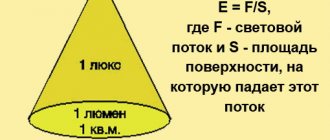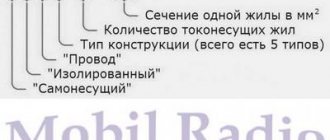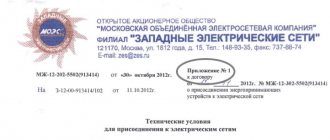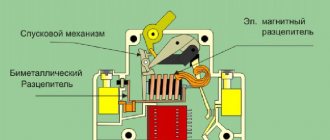What is occupational safety training and when should it be carried out?
Current labor legislation requires that the employing company provide workers with the necessary training system in the basics of safety at work.
For this purpose, the Labor Code of the Russian Federation obliges organizations to conduct certain types of training on labor protection (Articles 212, 225 of the Labor Code of the Russian Federation). The employee, in turn, is required by the Labor Code of the Russian Federation to undergo such instructions without fail (Article 214 of the Labor Code of the Russian Federation). Please pay attention! If for some reason a production specialist has not undergone such instruction, then the employing company will be obliged to prevent such a specialist from directly going to work (Article 212 of the Labor Code of the Russian Federation).
In the process of conducting occupational safety training, the enterprise needs to familiarize the specialist with the hazardous production factors that he may encounter in the process of performing the tasks facing him, explain to the employee the requirements for occupational safety and health at work (enshrined in the relevant local documents of the company), the norms of various internal regulations and instructions regarding occupational safety, as well as highlight the question of what methods and techniques can be used to safely perform production tasks. After the instruction has been carried out, you should verbally check how fully and correctly the person being instructed has mastered the material covered by the person conducting the instruction.
The types of training that a company should conduct upon the occurrence of certain events, as well as the general procedure for conducting training on labor protection in each specific case, are established by the resolution of the Ministry of Labor of the Russian Federation, the Ministry of Education of the Russian Federation “On the Procedure for Training in Labor Safety” dated January 13, 2003 No. 1/29 (hereinafter referred to as — Order No. 1/29).
In addition to the above-mentioned Order No. 1/29, when conducting various types of training of workers on labor protection, the company must necessarily take into account the norms of GOST 12.0.230-2007, approved by Order of Rostekhregulirovanie dated July 10, 2007 No. 169-st.
In practice, companies often have questions: what types of briefings need to be carried out, and where are the uniform rules for conducting specific types of briefings (how often, in what time frame, etc.)? It all depends on the industry in which the company operates. Order No. 1/29 contains only a general algorithm regarding the conduct of labor safety briefings in certain situations. Specific terms and procedures for conducting briefings (of different types) in relation to individual industries are fixed in industry-specific or inter-industry regulations (clause 2.1.8 of Procedure No. 1/29). Therefore, companies should focus specifically on them.
However, for all briefings there is a general documentation: upon completion of the briefing, the employing company should register this fact in the briefing log, indicating what kind of briefing was carried out, on what dates, and also certified by the signatures of both parties (instructor and employee).
In addition, in practice, the issue of conducting fire safety training is also relevant for companies. More about this in the article “How to conduct fire safety training (nuances)” .
What types of occupational safety training are there?
Clause 2.1 of Order No. 1/29, as well as section 7 of GOST 12.0.230-2007, assigns the employer the obligation to promptly conduct the following types of instruction:
- introductory;
- primary;
- repeated;
- unscheduled;
- target.
Who needs each of these types of instructions and why? You will find out the answer if you sign up for a free trial subscription to ConsultantPlus.
As a general rule, before a specialist is allowed to perform a certain production task directly at his workplace, such a specialist should undergo introductory training.
Please pay attention! Induction training is required for all persons who are expected to participate in the performance of production tasks, regardless of whether the employee is on the staff of the organization where the production task is planned to be performed. It is only important that such a person is directly involved in the production activities of the company. Therefore, everyone must undergo induction training: interns, interns from the university, workers seconded from partner companies, etc.
For information about what else is important to know when conducting induction training, read the article “How introductory training on labor protection is carried out .
After an employee has completed induction training, he still cannot be allowed to independently perform production tasks. To do this, the legislator requires initial training. It, in turn, must be carried out at the employee’s workplace by his immediate supervisor, who will subsequently accept the results of the employee’s production work and assign him new tasks (clause 2.1.3 of Procedure No. 1/29). Such a leader can be a foreman, foreman, etc.
Successful completion of the initial training allows the employee to continue working in production. However, the system for ensuring occupational safety and health at the enterprise must function continuously, therefore, at least once every 6 months, it is necessary to carry out repeated training with all production workers. The enterprise needs it in order to constantly “keep its finger on the pulse” and monitor whether the employee remembers all the labor safety rules and whether anything needs to be clarified.
In addition, certain circumstances may arise in the company that will entail the need for unscheduled training of workers (for example, legal regulations have changed, production technology has changed, etc.).
Read more about unscheduled briefings in the article “How to conduct an unscheduled briefing (nuances)” .
The employer company is required to conduct the above types of training for all its employees who regularly perform production tasks. However, what to do if one-time production tasks are planned? For these purposes, Order No. 1/29 provides for targeted training.
Personnel classification
The classification of personnel is based on interaction with devices during operation, as well as the availability of special knowledge in this area:
- Administrative and technical personnel practically do not interact with devices during work, but organize the work of other services and departments;
- Repair personnel are engaged and specialized in carrying out repair work on installations or electrical networks;
- The operational and repair department acts as separate staff units, the function of which is to carry out repairs of complex installations and requires confirmation of knowledge as part of certification;
- personnel at production sites work directly on electrical equipment under high voltage every day. To do this, in addition to a course of special knowledge, it is necessary to undergo special training and a medical examination. It is in relation to this category that special groups of admission to installations are applied.
Rules for the use of electrical equipment and handling of devices during work activities
Targeted briefing on labor protection: features of implementation
Clause 2.1.7 of Order No. 1/29 stipulates that the enterprise should conduct targeted training on labor protection in the following cases:
- if any single, one-time work is expected to be performed;
- if the company carries out work to eliminate the consequences of various natural disasters and accidents;
- if permits are required to perform the work (for example, a work permit);
- if the company is holding a mass event.
In accordance with Procedure No. 1/29, the employee must be given targeted instruction by his immediate supervisor, who will monitor the progress of tasks and also carry out their final acceptance.
As in the general case, the content of targeted briefing in each individual case is determined based on the circumstances that necessitate its implementation. As mentioned above, during the briefing, the employee is introduced to the techniques and methods of safely performing work functions. Therefore, the composition of such techniques and methods may differ in each specific case. For example, if the training is carried out in connection with the liquidation of the consequences of a flood, workers should receive instructions on how to provide the necessary amount of assistance to the victims, without threatening the life of the specialist himself.
Important! In order to have a well-functioning system for conducting targeted briefings related to a particular circumstance, it is advisable for the company to consolidate the main issues that require coverage during the briefing in an internal program document (approved, for example, by a company order). At the same time, it makes sense to provide illustrative examples of certain safe work practices during the briefing itself, so that employees adopt such practices with greater efficiency.
Upon completion of the explanation during the targeted briefing to employees of all the necessary issues of ensuring occupational safety, the instructor must check whether the material has been correctly mastered. For this purpose, an oral survey of the instructed is carried out. After all, if an employee has not mastered the instructions presented, then he cannot be allowed to perform the tasks for which the targeted instruction was carried out - at least until he successfully passes the re-inspection (clause 6.12 of GOST 12.0.004-2015). Such an employee must undergo training again after some time.
As in the general case, the conduct of targeted briefing must be documented in the appropriate briefing log.
You can download the form for such a journal on our website.
If the need to conduct targeted training was caused by any work that requires permits for their implementation, then the fact of completion of the targeted briefing should also be recorded in such permitting documents, for example, in the work permit (clause 8.10 of GOST 12.0.004 -2015).
Results
The company is obliged to conduct occupational safety training in production with each employee whose job functions include performing production tasks.
At the same time, it is important to know that the occurrence of such events as a natural disaster, the performance of one-time work, or the holding of a mass event requires the employer to conduct separate targeted training. The company should be entrusted with carrying out targeted training to the manager of the relevant work. At the same time, it is important not to forget to check employees for assimilation of the materials of the targeted briefing, and also to correctly reflect the fact of its implementation in the internal local documents of the company. At the same time, you must not forget that if special permitting documentation is drawn up to carry out work, then the fact of conducting targeted training must be reflected in it. You can find more complete information on the topic in ConsultantPlus. Free trial access to the system for 2 days.
Permits
Occupational safety in construction and labor protection
Permits for work at various production facilities are certificates of compliance with a certain admission group, as well as categories of personnel depending on the work performed. These documents confirm the presence of special knowledge and skills in handling power tools, as well as knowledge in the field of labor protection.
Note! Categories are assigned during the training process at the enterprise or in special training centers, depending on work experience and production skills.










